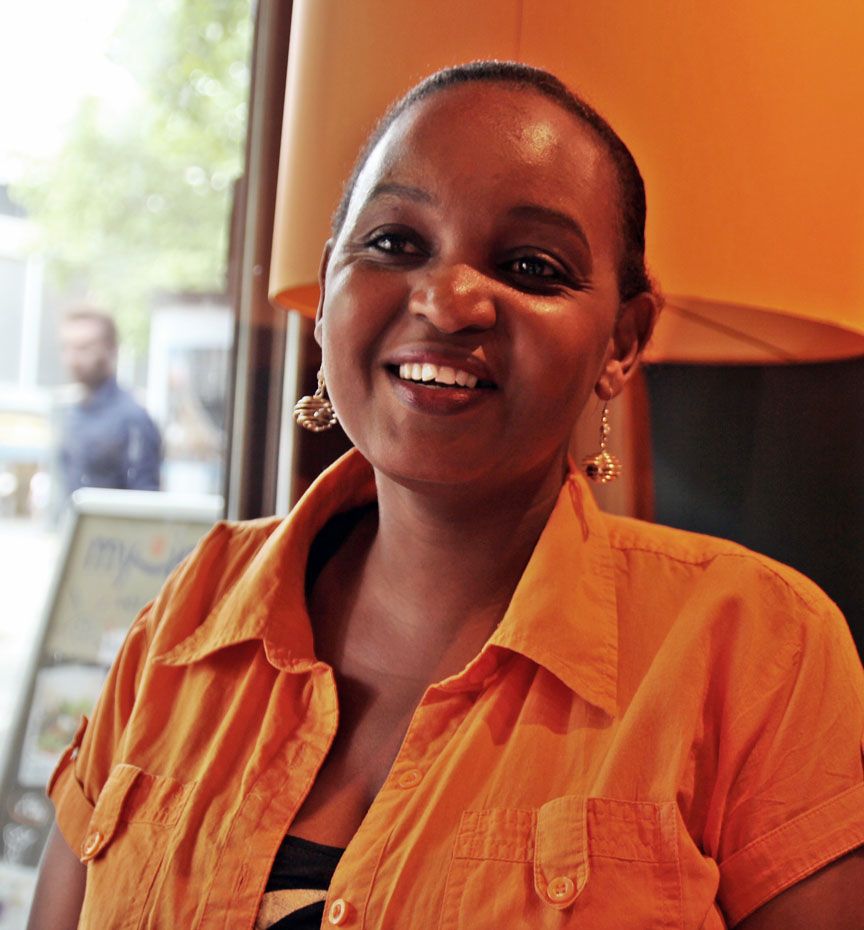 A passion in tea blending coupled with experience in serving various tea blends to international guests has seen one Kenyan entrepreneur ride on growing demand in Germany where the beverage is becoming a favourite in meetings, corporate and casual.
A passion in tea blending coupled with experience in serving various tea blends to international guests has seen one Kenyan entrepreneur ride on growing demand in Germany where the beverage is becoming a favourite in meetings, corporate and casual.
Rachel Mwakazi has had more than two decades experience selling different commodities to Germans but at no time has the crave for Kenyan tea in Germany been this high, which has now seen her become a household name in Germany.
Ms Mwakazi got an opportunity to work with Cacao Marketers from West Africa and she realized that she can also bring in Kenyan tea to would-be customers in Germany. “The group allowed me to introduce our locally made teas, which I sourced personally from Kenya. When people tasted this tea for the first time, they would be wowed by its unique aroma and immediately ask for more information, or make orders,” she said.
It is out of the experiences, the feedback and the continual relationships with various customers that she came up with her own label, Mrangi Tea. She says Kenyan tea is unique, and once a person has tasted it, they will mostly ask to buy.
Ms Mwakazi sells pure tea, weighing and packing it in the presence of the customer in her shop. She has also come up with a number of blends which she serves to customers at her tea shop.
In its purest form, Kenyan tea has gained recognition in markets across the world for its higher levels of antioxidants. Ms Mwakazi reckons that black tea is the biggest highlight of their marketing events in Deutschland.
“We sell teas of African origin as tea-break packages for various events. We, therefore, target various events around cities in Germany and showcase our brand to the attendants. The Kenyan tea is the main highlight in our selections to these events,” she said.
Since the beginning of the year, she has had to close down her tea shop in Cologne to concentrate on events, which have become major selling points for her tea. Ms Mwakazi has also established an online shop where buyers can buy the Mrangi Teas and other accessories from the comfort of their homes or offices.
The tea-tasting at events gives her an opportunity to talk about the Kenyan beverage. She says tea has become increasingly popular during corporate events, business forums, church meetings and other social events. “I get to talk not only about the tea, but about my land, about Africa as a whole and, therefore, rectify negative information that gets out there about Kenya,” she added.
“We say, ‘let’s discuss it over a cuppa’. And that has become like an opportunity to invite people for a chat and a tea as well,” explains the business woman who is popularly known as Kenya.
Out of these marketing endeavours, Ms Mwakazi has been able to come up with unique-tasting recipes that can be made using African teas. From her years of observation, shehas compiled the beverages that have takers asking for more. Playing with fresh and interesting flavours, she has ingeniously come up with tongue-picking recipes using blends of teas from various parts of Africa, such as the South African Rooibos Tea, Malawian Oolo Thyolo, different black and white teas, Sudanese Hibiscus and Moroccan samples among others.
“Wellness has become the big trend even in Germany, and people are warming up more towards tea instead of other beverages,” she says. “For Germans, how you present your product matters a lot,” Ms Mwakazi said.
She thus offers the beverage in cups that accentuate the colour of the tea, as well as with other accessories such as special spoons, sieves and tea pots.
But no efforts come without challenges, and one of these hiccups is the initial resistance to her business. Being a foreigner, she says it was tough to come up with a shop selling African products, and even attract people to it. But with time, more Africans in Germany started asking for the items which they associate with home.
“Kenyans will ask for their favourite spices including Royco and Ketepa teas. Other Africans would also ask me for items from their lands. I had to look for connections in these areas so that I could meet these needs,” she said.
Mrangi Tea is sourced from small scale farmers in various parts of Kenya, and is exported after meeting all regulations on food products both in Kenya and Europe. Ms Mwakazi has been exhibiting the tea in supermarkets and is working towards having the German stores stock Mrangi Tea.
Her next market, she says, is Norway, where her tea has already started selling. For Ms Mwakazi, there is no limit to success. She is indeed encouraging other Kenyans to come up with business ideas of products they can sell in Europe. “The market is ready. If there is someone out there willing to try it out, come with your product and we shall help you sell it in Germany.”
















Comments powered by CComment